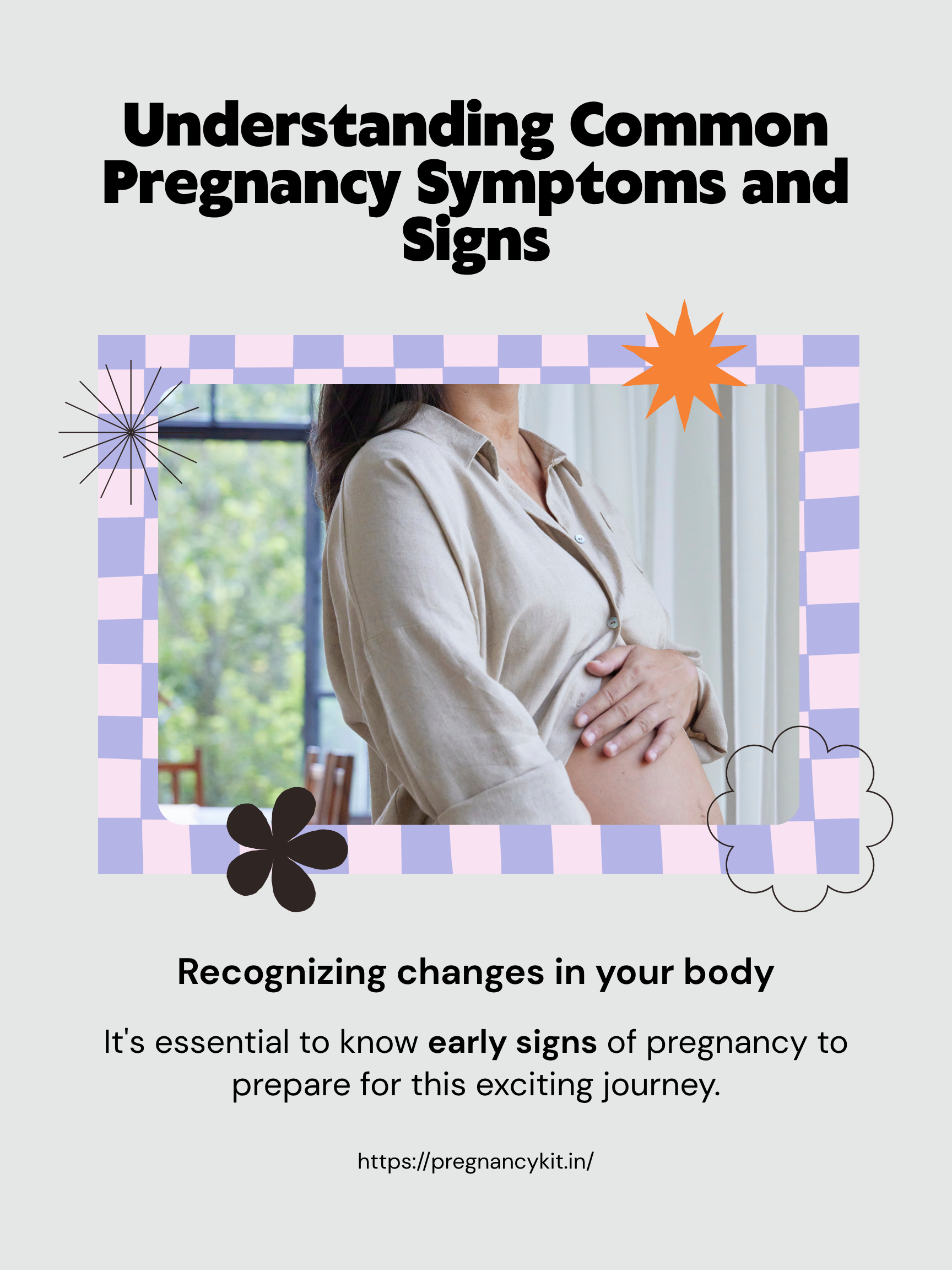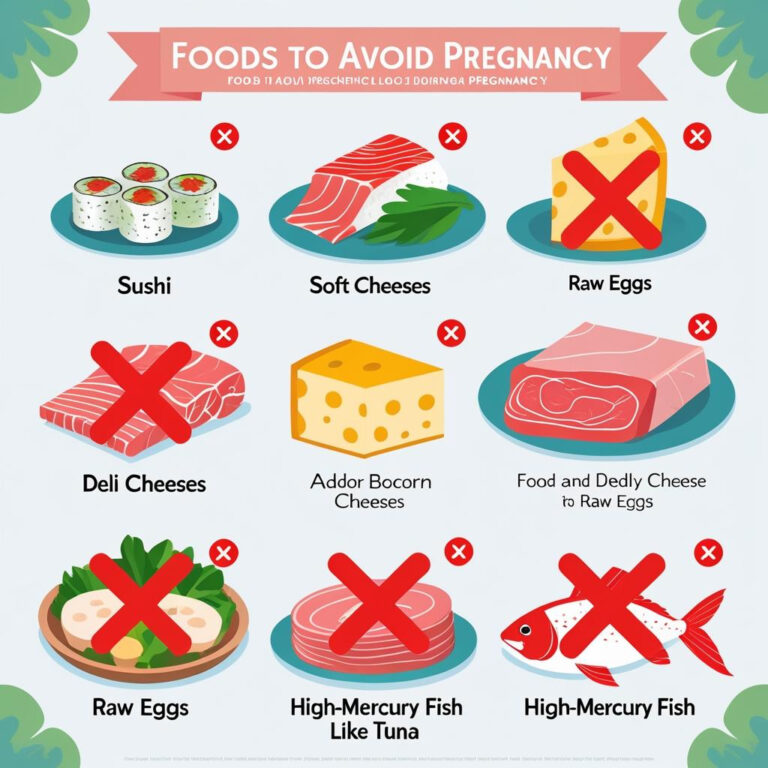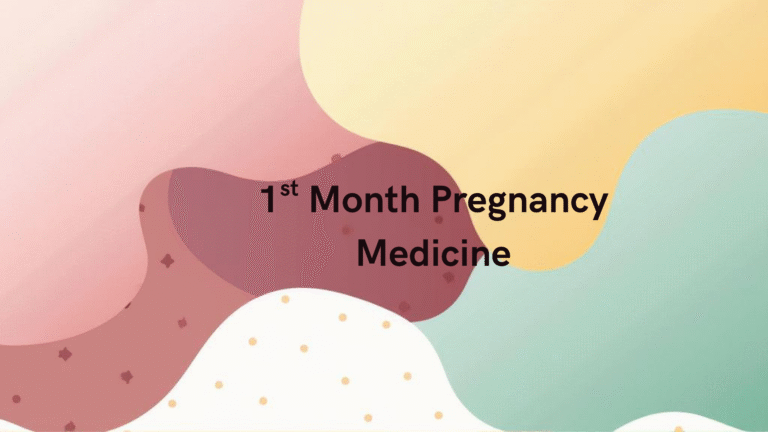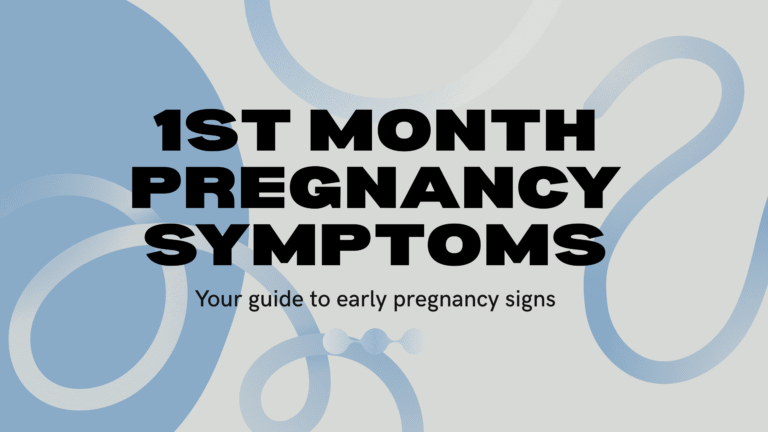
Pregnancy symptoms can be confusing. If you’re wondering whether you might be pregnant, you’re not alone. Many women feel anxious, excited, or unsure in the early days. Some signs show up even before a missed period. Let’s walk through the most common pregnancy symptoms together, so you know what to expect and when to act.
What Are Pregnancy Symptoms?
Pregnancy symptoms are physical and emotional changes in your body caused by pregnancy hormones. These changes begin as early as one week after conception. While each woman is different, many experience similar symptoms.
Early Symptoms You Might Notice
You might be the first to sense something is different. Here are early signs that could indicate pregnancy:
1. Missed Period
This is often the first clue. If your period is late and your cycle is regular, you may be pregnant. But keep in mind, stress and illness can also delay periods.
2. Tender or Swollen Breasts
Do your breasts feel sore or heavier than usual? This is a very common pregnancy symptom. Hormones increase blood flow and cause changes in breast tissue.
3. Fatigue
Feeling tired for no reason? Pregnancy hormones, especially progesterone, make you feel sleepy. It may hit you like a wave—even if you had enough rest.
4. Nausea or Morning Sickness
This symptom doesn’t just happen in the morning. You might feel queasy anytime, even from certain smells or foods. It can begin as early as two weeks after conception.
5. Frequent Urination
Are you visiting the bathroom more often than usual? Increased blood flow to your kidneys and growing uterus puts pressure on your bladder.
6. Mood Swings
Do you feel unusually emotional or teary? That’s okay. Pregnancy hormones affect mood just like they do before your period, only more strongly.
Unusual Pregnancy Symptoms
Some symptoms are less obvious but still important:
- Metallic taste in mouth
- Increased saliva
- Food cravings or aversions
- Dizziness or lightheadedness
- Mild cramping or spotting
These can appear early on and may be confusing. Always pay attention to your body.
Pregnancy Symptoms vs PMS: What’s the Difference?
It’s easy to confuse pregnancy symptoms with PMS. Both can cause mood swings, fatigue, and bloating. But pregnancy symptoms tend to last longer and feel stronger. For example, breast tenderness in pregnancy often feels more intense than before a period.
When to Take a Pregnancy Test
If you’ve noticed some of the pregnancy symptoms above, especially a missed period, take a home pregnancy test. The best time is after your period is late. Early morning urine gives the most accurate result.
Less Common Pregnancy Symptoms You Shouldn’t Ignore
Every woman experiences the symptoms differently. Some signs may seem odd, but they’re real:
- Nasal congestion (due to increased blood flow)
- Shortness of breath
- Bloating and constipation
- Lower back pain
- Strange dreams or vivid thoughts
These symptoms might surprise you. But they are part of your body’s response to pregnancy.
When to See a Doctor
If you suspect you’re pregnant or have taken a positive test, schedule a visit with your doctor or gynecologist. They will confirm your pregnancy through a blood test or ultrasound and give you a prenatal care plan.
Also, seek medical help if you experience:
- Heavy bleeding
- Severe abdominal pain
- Fainting or severe dizziness
These could be signs of complications like ectopic pregnancy.
Emotional Pregnancy Symptoms
Pregnancy isn’t just about physical changes. You may feel emotional highs and lows. Anxiety, excitement, fear, and joy can all occur—sometimes in one day! This is normal. Hormones are strong, and your life is about to change.
Talk to someone. A partner, friend, doctor, or counselor can help you cope.
Tracking Your Pregnancy Symptoms
Keeping a diary or using an app can help. Note down:
- What you feel
- When you feel it
- How strong the symptom is
This helps your doctor understand your pregnancy better and keeps you more connected to your body.
Tips to Manage Pregnancy Symptoms
Here are simple ways to feel better:
- Eat small meals if you feel nauseous
- Drink water often to stay hydrated
- Rest when tired; naps help!
- Wear a supportive bra for sore breasts
- Avoid strong smells if they trigger nausea
- Talk to a doctor before taking any medication
You don’t have to suffer in silence. Help is always available.
Pregnancy Symptoms and Your Lifestyle
Your lifestyle affects your symptoms. Stress, sleep, and diet all play a role. Try to:
- Sleep 7–8 hours per night
- Avoid caffeine and junk food
- Do light exercise like walking or yoga
- Practice deep breathing to reduce stress
These steps can reduce pregnancy symptoms and make you feel more comfortable.
How Long Do Pregnancy Symptoms Last?
Most early pregnancy symptoms improve after the first trimester. By the second trimester, you might feel better and have more energy. But every woman is different. Some symptoms may come and go, and that’s okay.
Partner Support for Pregnancy Symptoms
If your partner wants to help, guide them. Let them know:
- What makes you feel better
- What smells or actions to avoid
- When you need emotional support
Pregnancy is a journey. You don’t have to walk it alone.
Pregnancy symptoms are your body’s way of saying something new is happening. Whether it’s a missed period, sore breasts, or just a strong feeling—you know your body best. Trust your instincts. If you think you might be pregnant, take a test and talk to your doctor.
Remember, each pregnancy is different. What you feel is real. Listen to your body, take care of yourself, and don’t be afraid to ask questions.
Pregnancy symptoms can feel overwhelming, but you’re stronger than you think. Your body is doing something amazing. Take it one day at a time—and never hesitate to reach out for support.



4 thoughts on “Pregnancy Symptoms: How to Recognize the Early Signs of Pregnancy”